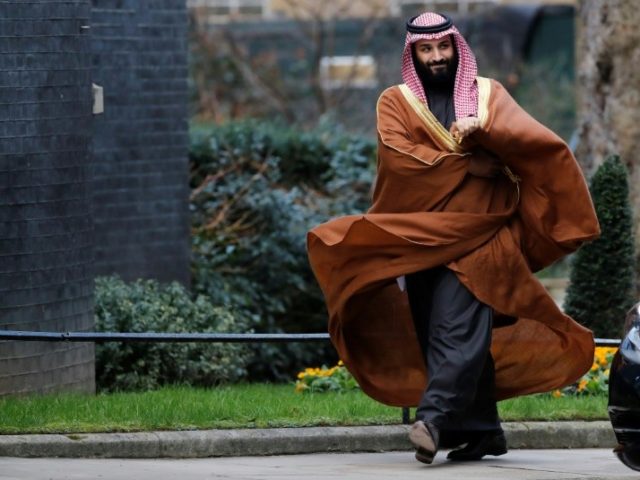Saudi Crown Prince Mohammed bin Salman (MBS) defended his anti-corruption crackdown as “extremely necessary” in an interview with Norah O’Donnell of CBS News’ 60 Minutes on Sunday.
“All actions taken were in accordance with existing and published laws,” Prince Mohammed insisted, doubtless well aware of allegations to the contrary.
Asked whether the crackdown was just a “power grab,” MBS replied, “If I have the power and the king has the power to take action against influential people, then you are already fundamentally strong. These are naïve accusations.”
The Crown Prince agreed with reports that over $100 billion was collected by the Saudi government in settlements with detainees but insisted the crackdown was not about clawing back money.
“The idea is not to get money, but to punish the corrupt and send a clear signal that whoever engages in corrupt deals will face the law,” he said.
“Is this also about sending a message that, as we say in America, there’s a new sheriff in town?” O’Donnell asked.
“Absolutely. Absolutely,” he said.
MBS was unapologetic about his own extravagant lifestyle.
“I’m a rich person and not a poor person. I’m not Gandhi or Mandela,” he said. “I’m a member of the ruling family that existed for hundreds of years before the founding of Saudi Arabia. We own very large lots of land, and my personal life is the same as it was 10 or 20 years ago. But what I do as a person is to spend part of my personal income on charity. I spend at least 51 percent on people and 49 on myself.”
60 Minutes noted that Crown Prince Mohammed’s anti-corruption crackdown has been strongly supported by its highest-profile target, Prince Alwaleed bin Talal, and by top MBS adviser Mohammed al-Sheikh, who estimated that up to 10 percent of the Saudi government’s annual spending was simply “disappearing” into corruption.
Aside from his remarks on the anti-corruption crackdown, the most interesting part of MBS’ interview came when he described Saudis as “victims” of the 1979 Islamist revolution in Iran and the extremist occupation of the Grand Mosque in Mecca. He portrayed his cultural reforms as an effort to return to what Saudi Arabia was like forty years ago.
“We were living a very normal life like the rest of the Gulf countries. Women were driving cars. There were movie theaters in Saudi Arabia. Women worked everywhere. We were just normal people developing like any other country in the world until the events of 1979,” he said.
The Crown Prince will arrive in Washington to meet with President Donald Trump on Tuesday.

COMMENTS
Please let us know if you're having issues with commenting.